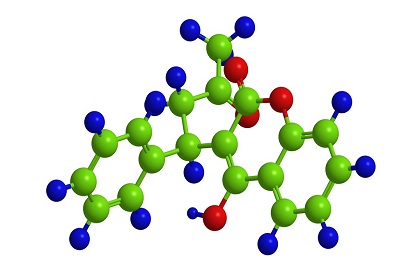Search
What You Need to Know
In this form of arthritis, one or more of your joints gets painful, red, and swollen for several days. Treatment can include medication, drinking more fluids, and changing what you eat.
What is gout ?
Gout is a painful and sometimes disabling form of arthritis. It involves the joints, the places where bones connect. Gout affects more men than women. You are more likely to develop gout if you are overweight or if you have high blood pressure, high cholesterol, or diabetes.
What are the symptoms of gout ?
Gout causes attacks of pain that come and go without warning. Symptoms are different for every person, but the most common are:
• Severe, sudden pain in one or more joints (the big toe is often the first place where it's felt)
• Swollen joints
• Red or purplish, tight, shiny skin over joints Warmth over the joint
• Hard lumps (nodules) under the skin, especially near joints
What causes gout ?
Gout is caused by crystal deposits in the joints. These deposits form when levels of uric acid (a normal waste product) become too high in the blood. Reasons for this may include:
• Genetics - the body naturally produces too much uric acid
• Eating foods or drinking beverages with high amounts of a chemical named purine, such as meat, poultry, fish, beer, and drinks sweetened with fructose
• Fasting
• Dehydration
• Certain medications
• Kidney disease - the kidneys have a hard time flushing uric acid out of the body
How will my clinician figure out if I have gout ?
Your clinician will ask you questions and do a physical exam. Your clinician may also take a small sample of fluid from a joint that hurts you. This sample will be sent to a lab where it will be tested for the kind of crystal deposits that cause gout.
How is a gout attack treated ?
Treatment depends on your age, your overall health, and your medical history. It also depends on the degree to which gout has developed and what kinds of medicines you can take safely. Treatment may include:
• Medications (best if taken at the first signs of an attack)
◦ Non-steroidal anti-inflammatory medicines (NSAIDs)
◦ Colchicine
◦ Corticosteroids (pills or injection)
• Resting the joint
What can I do to reduce gout attacks ?
To help prevent future attacks, options include:
Lifestyle changes
• Lose weight if you are overweight (but avoid diets designed for quick or extreme weight loss, which can increase your uric acid levels)
• Avoid food and drink that is high in purine (Please refer to Low Purine Diet below)
• Drink lots of fluids (but not alcoholic drinks) to help flush uric acid from your body
• Eat a balanced diet
• Exercise regularly
Preventive medications
If you have frequent gout attacks, your clinician may suggest medication to help prevent them. Options include:
• Drugs that cut down how much uric acid your body produces (such as allopurinol or febuxostat)
• Drugs that increase how much uric acid your kidneys flush out (such as probenecid)
Take these preventive drugs as prescribed. Even if you have an attack, don't stop-keep taking them according to instructions.
Low-Purine Diet
Your doctor has recommended a low-purine diet for you. Purine (pyur-een) is a substance that the body breaks down into uric acid. Too much uric acid can lead to problems, including kidney stones and gout. Maintaining a healthy weight with regular exercise and a balanced diet will also help prevent and/or reduce symptoms of gout.
This document is not a substitute for your care team's medical advice and should not be relied upon for treatment for specific medical conditions.
© 2017 The General Hospital Corporation. Primary Care Office InSite
Click the link for more information on Emergency Medicine Clinical Service
Click the link for more information on Rheumatology and Immunology Clinical Service











